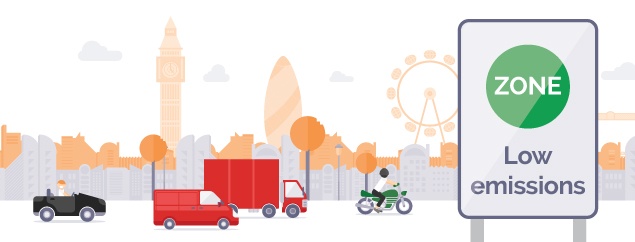Looking for a Vehicle Valuation or hpi check?
cap hpi explores the main themes covered by SMMT UK Automotive Priorities

The SMMT UK Automotive Priorities, 2017 – 2022 covers the main themes in the automotive industry for the next couple of years and states:
‘Technology is having a transformative effect on the automotive sector and mobility. Advances in ultra low emission, connected and autonomous technologies are making vehicles cleaner, more efficient and safer. Digitalisation, machine-to-machine communication and big data are redefining manufacturing, making it more productive and responsive to the needs of customers.’
Covering these main themes, experts at cap hpi look at Ultra Low Emission Zones (ULEZ), Electric Vehicles (EVs) and connected mobility.
ULEZ
Ultra Low Emission Zones (ULEZ) have been a hot topic for a while now. London’s ULEZ came into effect on 8 April this year and the SMMT considers what the government and industry need to do to continually improve air quality in the UK.
On the issue of Sustainable mobility and Ultra Low Emission Vehicles (ULEVs) the SMMT states:
The automotive sector has a critical role to play in developing sustainable mobility. The industry is already more efficient and its products are cleaner than ever. New internal combustion engines technologies as well as alternative powertrains will reduce greenhouse gas emissions and improve air quality, while also providing consumers with the range of choice they expect to find in the market. These technologies will have a critical role to play in delivering environmental priorities during the transition to low emission vehicles and must be taken into account in government’s overarching approach to sustainability.
The transition to ultra low emission vehicles also provides a strategic opportunity for growth and jobs in the UK. However, grasping this opportunity will require a holistic, whole of government approach, which prioritises investment in the development of ultra low emission technologies, development of the supporting infrastructure and investment in skills to ensure that the ULEV supply chain grows in the UK.
Government must:
- Take a technology neutral approach to reducing emissions and improving air quality
- Develop a holistic end-to-end ULEZ strategy
- Guarantee funding for the uptake of Ultra Low Emission Vehicles, their supporting infrastructure and R&D in low emission technology
cap hpi experts look into all aspects of ULEZ, covering everything you need to know including the recent ULEZ implementation in central London, imminent regional rollout across the UK, the impacts of clean air zones, the role of alternatively fuelled vehicles (AFVs), the future of diesel and the effects of WLTP. To read more about this subject click here
Electric vehicles
It is clear that to realise the SMMT’s proposition for ULEZs to improve air quality, Electric Vehicles (EVs) on our roads have a big part to play. However, what’s impacting this and influencing adoption?
EVs are getting more and more popular around the world – and it’s easy to see why. They provide a greener and more efficient alternative to some of the vehicles currently dominating our roads. But not everyone is convinced by them, with many drivers giving electric cars a wide swerve when it comes to choosing their next vehicle.
Looking at reasons why people would or wouldn’t make the move to electric, cap hpi conducted a survey and uncovered some commonly held misconceptions.
From the survey findings, main consumer concerns have been highlighted as:
- Lack of charging points
- Price
- Range anxiety
- Takes too long to charge
- Low range
To see all the findings from this survey and get the answers to the questions your customers are asking click here
Connected mobility
On the issue of connected mobility the SSMT states:
Advances in digital technology are transforming the automotive sector. New cars increasingly include connected and autonomous features, while manufacturing is being transformed by digitalisation. These new technologies present a significant economic opportunity. The overall economic benefit of connected and autonomous vehicles could be in the region of £51 billion per year by 2030, with 320,000 jobs created.
25,000 of which would be in automotive manufacturing. By fully embracing digitalisation in manufacturing, the automotive sector stands to gain £6.9 billion every year by 2035 and the economy as a whole could gain £74 billion by 2035. Government must ensure that the UK positions itself effectively to reap these benefits. In doing so, it must:
- Develop a comprehensive CAVs strategy
- Remove barriers to the development and deployment of CAVs
- Collaborate with the industry to promote digitalisation
Experts at cap hpi have predicted how technology in the automotive space will shape the future for the industry. In 5 to 10 years it is predicted that cars will be more connected to each other and the world around them, in 10+ years vehicles will have every conceivable feature already built in with the ability to enable or disable each specification, 5-20 years will see the transition to autonomous vehicles drip feeding more safety controls as acceptability from consumers gradually increases.
To see more detail on how our experts anticipate how the automotive industry will evolve over the next 20 years and beyond click here
Let's keep in touch.
Thanks for signing up.
Join our mailing list to keep up to date on the latest news, reviews and insights.